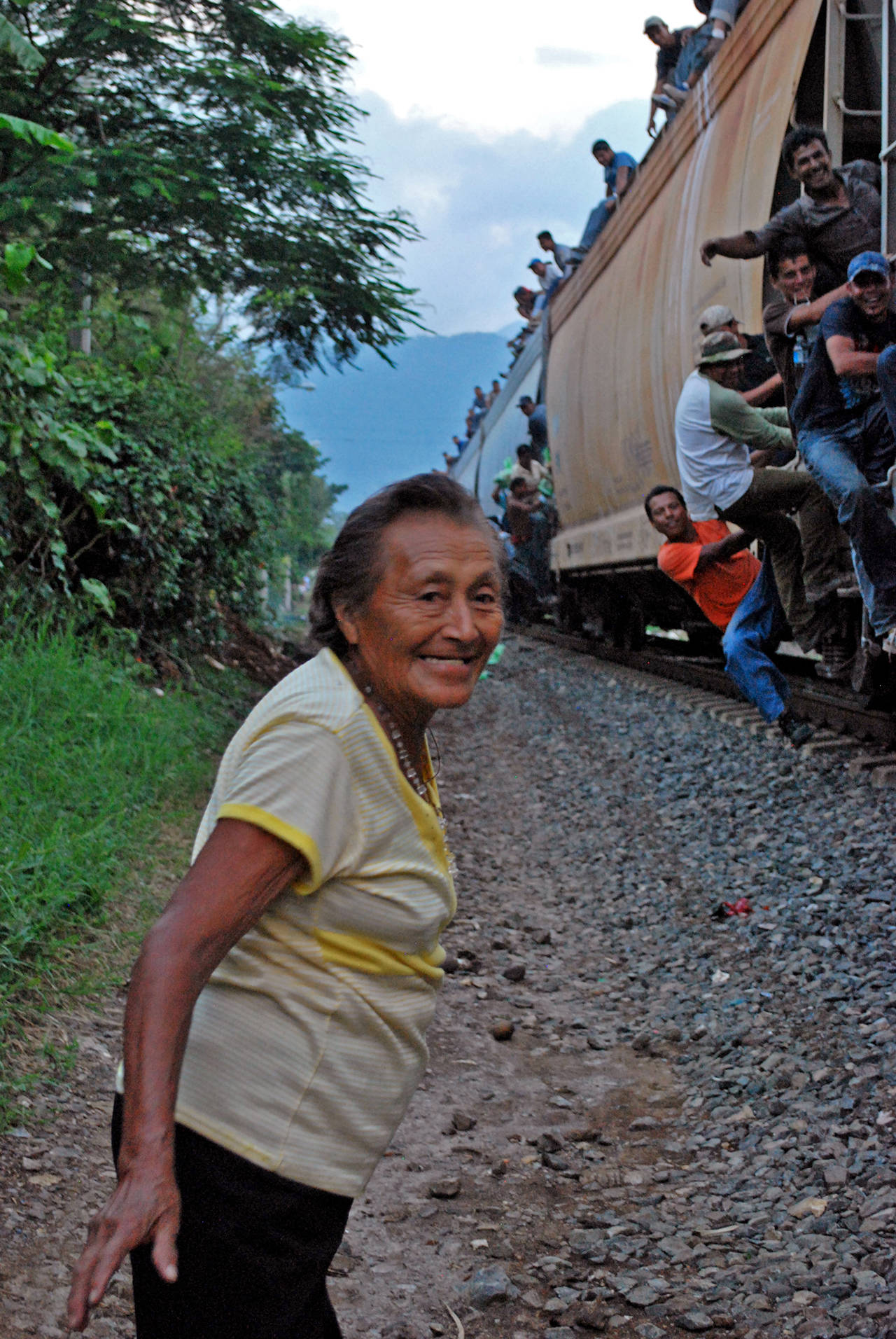By Katie Barthelow
Special to the Weekly
In a small community in Veracruz, Mexico, not unlike Lopez in size or spirit, a group of women called “Las Patronas” honor humanity’s connectedness every day. The cargo train known as “The Beast” speeds through their town several times a day, carrying atop it hundreds of Central American migrants risking their lives in hopes of reaching the United States to build a better life for their families. Every day since 1995, Las Patronas have made hundreds of pounds of food and tossed it up to the speeding train.
“Llévate Mis Amores (All of Me)” is an intimate look at these women and their lives. The documentary has been an official selection in more than 60 film festivals around the world and has won more than 10 awards including “Best Feature Film” at the 2016 Immigration Film Festival. Cinematographer Antonio Mecalco will travel to Lopez for a special screening at the Lopez Center on Saturday, May 27 at 4 p.m. The event is free and open to the public.
We’re excited to welcome you to Lopez. Why do you think it’s important that people see this documentary?
More than anything this film speaks to empathy and solidarity. To the fact that we’re human beings. And I think that is incredibly important in a time when borders and nations are turning into measures of how much a person is worth and how much you can or cannot do with your own life. I think that it’s important to declare that every person has the same worth, regardless of status or circumstance.
The film also teaches us about sisterhood. Las Patronas empower themselves in their kitchen and live their lives on their own terms. Their lives are not dictated by socioeconomic status or where they were born. They are an example of how to really live out your values, an example I hope we all take to heart.
You capture scenes of deep vulnerability and candor. How did you achieve such natural footage?
The vulnerability you see on the screen is a reflection of the empathy and trust that we were able to build with these people who gifted their story to us as filmmakers. There were times when there weren’t enough hands to get all of the food we had prepared to the migrants before the train passed by. And they were hungry, like really hungry. And they were shouting it out at us. I was the only one with a camera, but I would put it down and help throw food. I couldn’t justify getting a shot if it meant people went hungry. Before I’m a photographer, I am a human being; I think before any profession we’re human. And it’s about getting back to what you are at the core. If we did that more often, I think this world could be a different place.
What’s been the most powerful experience for you as you share this film?
Seeing the face of someone as they are watching the film really moves me. The fact that I can make them feel emotions, make them laugh, make them cry, create that empathy. Since the beginning of time, humans have tried to express and transmit love in various artistic forms. Being a part of that is powerful to me.
This will be your first time in the San Juans – anything you’re looking forward to?
I want to see orca whales! No, I guess, I want to get to know the people. I’ve heard that it’s a small community with a lot of solidarity, and this film is perfect for these kinds of communities. I think Lopez might see itself reflected in the film.



